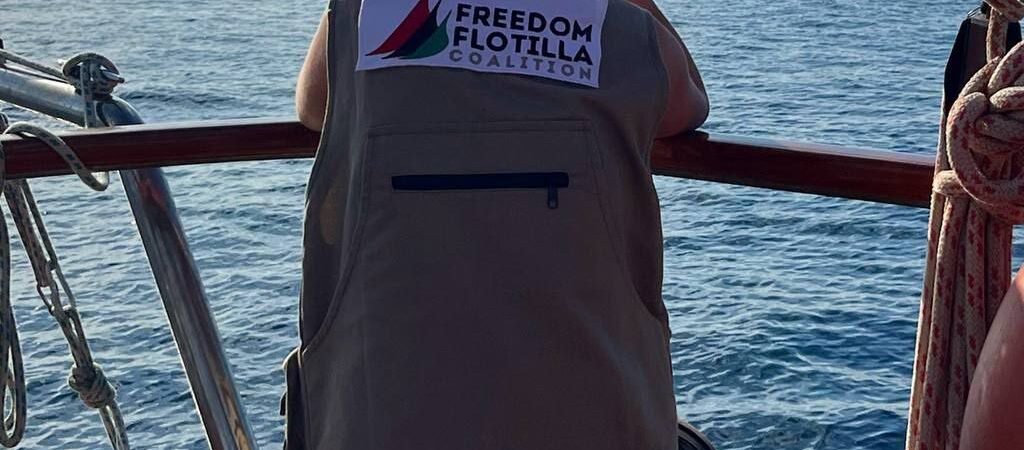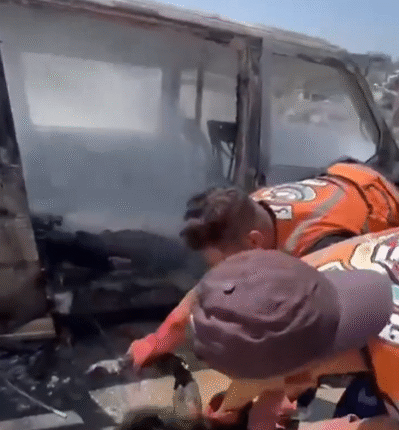As the humanitarian crisis in Gaza becomes more dire with each passing day, a civilian fleet of activists, aid workers, and international observers are taking a treacherous journey through turbulent waters both metaphorical and literal. Their mission: deliver aid, break the blockade, and bring worldwide attention to a conflict that has killed tens of thousands and rendered over a million homeless. The voyage of the flotilla occurs against the background of intensified hostility and tragedy of the ongoing war in Gaza, where unrelenting Israeli bombardment, refusal to admit food, water, and medicines, and a record-breaking death toll have pushed the region into one of history’s most catastrophic humanitarian crises. Based on the latest figures released by humanitarian agencies, more than 377,000 Palestinians were confirmed to have been killed since October 7, 2023, with thousands being missing, buried under the debris, or displaced without access to aid. Here, the flotilla is not just a logistical exercise to deliver goods it is a gesture of defiance and solidarity that is challenging what activists describe as a de facto siege that has cut Gaza off from the rest of the world. The flotilla, made up of ships from across the globe, carries tons of humanitarian supplies: food, medicine, water filters, and construction material. But it carries something intangible a message of moral protest. On board are doctors, reporters, lawyers, and peace activists who believe that in the face of injustice, neutrality is not an option. One of the organizers described, “We know the risks, but we also know silence on Gaza is complicity. This flotilla is our voice and our protest.” These efforts recall earlier missions, such as in 2010 the Gaza Freedom Flotilla, when Israeli troops boarded the Mavi Marmara, killing nine activists and sparking international outcry. Though security risks remain heightened, the current flotilla seeks to leverage international media and diplomatic coverage to dissuade violent intervention and be heard far beyond the Mediterranean. Life in Gaza is dire. Hospitals have been bombed or rendered unable to function due to lack of fuel. Schools, where families are often taking shelter, are destroyed. Safe water is a luxury, and the threat of illness grows with every passing day. International NGOs like Médecins Sans Frontières (MSF), the World Food Programme (WFP), and the International Committee of the Red Cross (ICRC) have called Gaza “unlivable,” but the United Nations has issued repeated calls for a swift and sustainable ceasefire and unobstructed access for humanitarian aid. The sea and land blockade continues largely, however, with security concerns and continued rocket fire from Hamas given as the pretext by Israel. Here the flotilla is a challenge to the status quo and an act of desperation to reach a population surrounded by an ever more desperate crisis. The journey of the flotilla has not escaped world powers. Several European governments issued warnings to their citizens aboard the ships that they would be detained or deported. Israel reiterated that any attempt to attempt to bypass its maritime blockade will be considered “provocative” and liable to be intercepted by the Israeli navy. At the same time, human rights groups have demanded that governments protect participants in the flotilla and extend them protection under international law. The naval blockade itself has been described by some legal experts as possibly illegal under international humanitarian law, particularly given its disproportionate impact on civilians and the widespread deprivation it has created. Francesca Albanese, Special Rapporteur for the situation of human rights in the Palestinian Territory, called on states recently to respect humanitarian missions of peace. “The flotilla is not a threat it is a plea for humanity. It must not be met with violence,” she said. Whether the flotilla reaches Gaza or is stopped en route, its purpose already addresses a segment of global civil society growing furious at the inaction of the international community. Protests across the globe from London to Cape Town, Istanbul to Jakarta have cited the flotilla as a powerful symbol that people are stepping into the space vacated by the states. For Palestinians around the world, and especially those still in Gaza, the flotilla is a beacon of hope. Not so much because it is an exercise in aid, but because of what it symbolizes: that they have not been forgotten. As an inhabitant in Gaza told a foreign reporter, “Even if they don’t arrive, we know they tried. That means something.” The Gaza flotilla is not just a collection of boats on a voyage it’s a protest, a protestation, and a symbol of opposition to complacency. As world leaders issue statements and negotiate stale ceasefires, ordinary citizens are sailing into crisis zones to observe, deliver relief and revive the world’s attention to a region that desperately requires it.
As Gaza Suffers, the Sea Once Again Becomes a Route for Resistance



